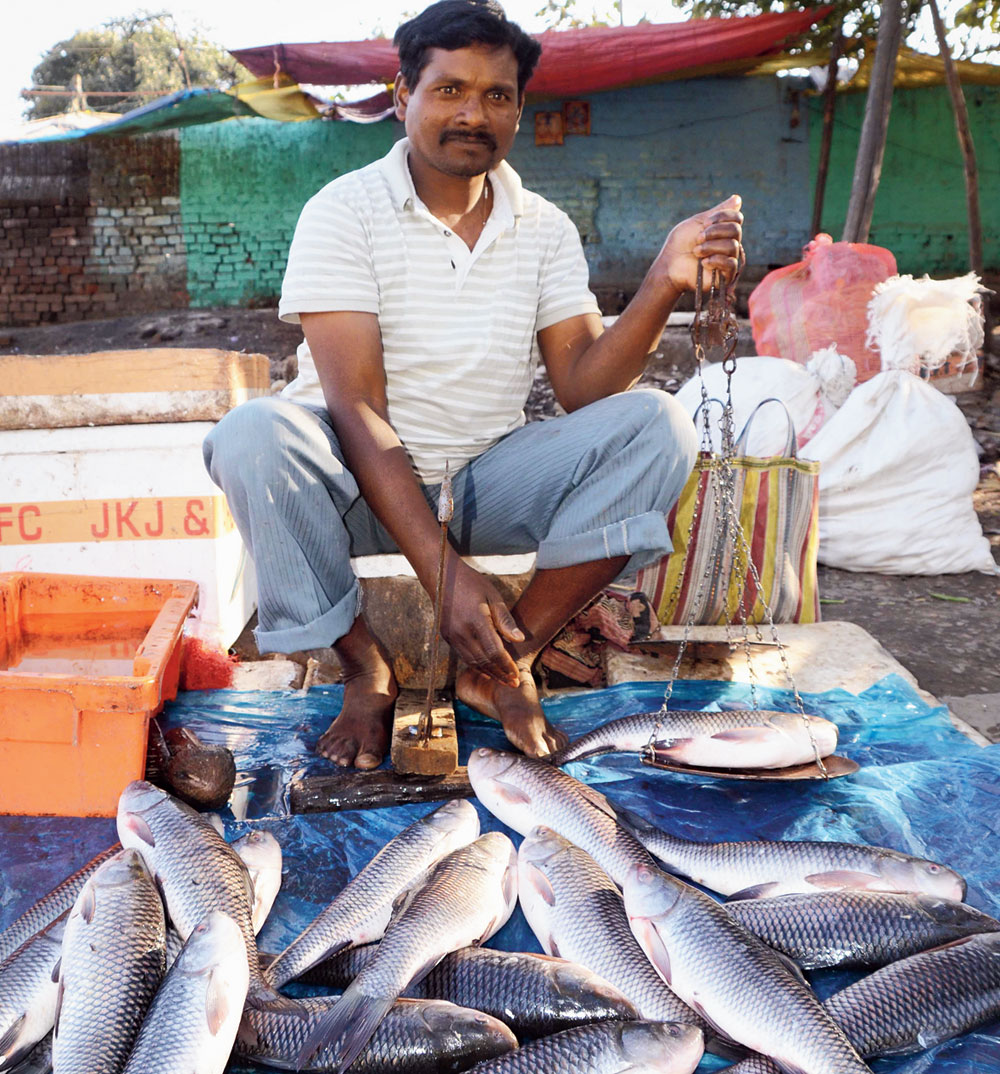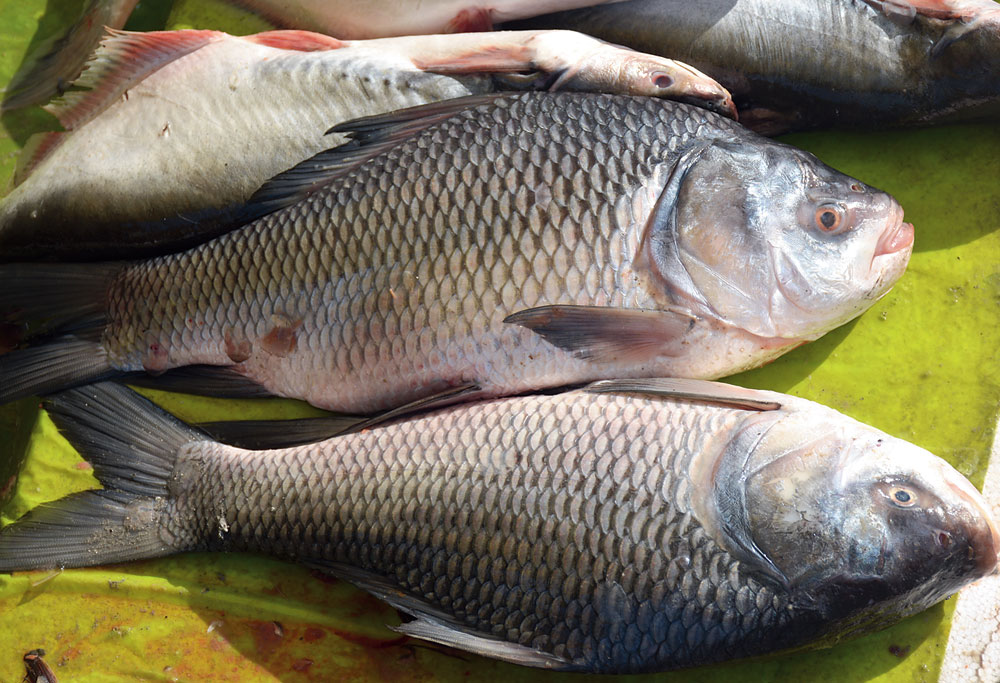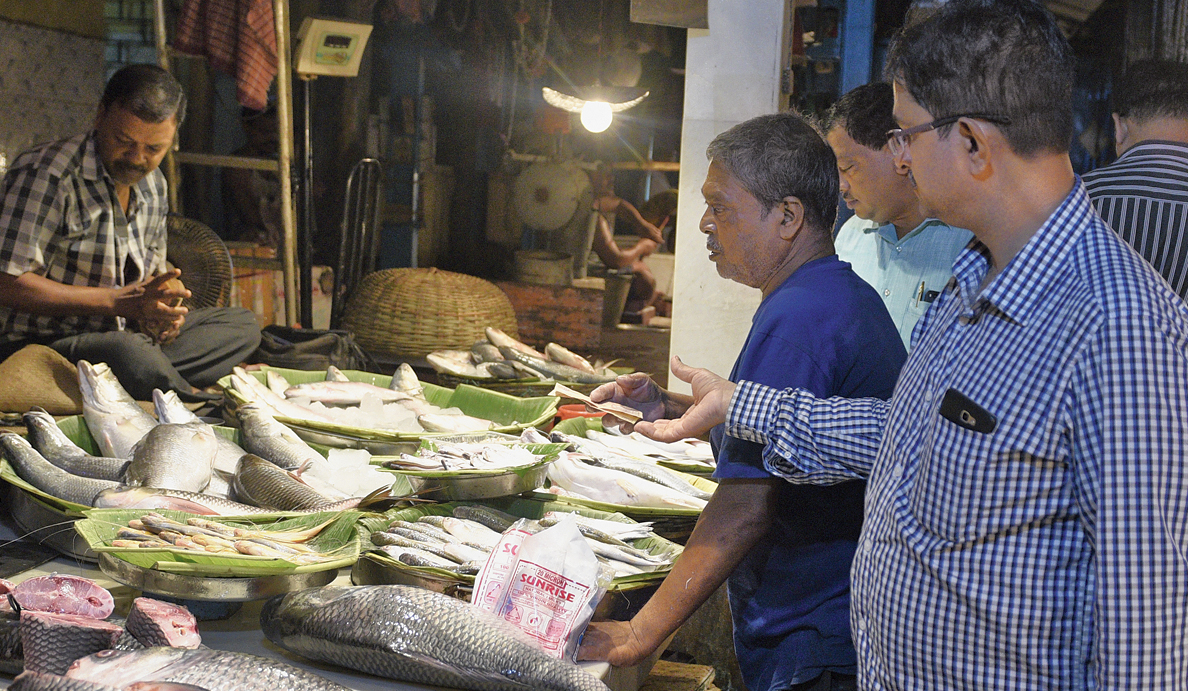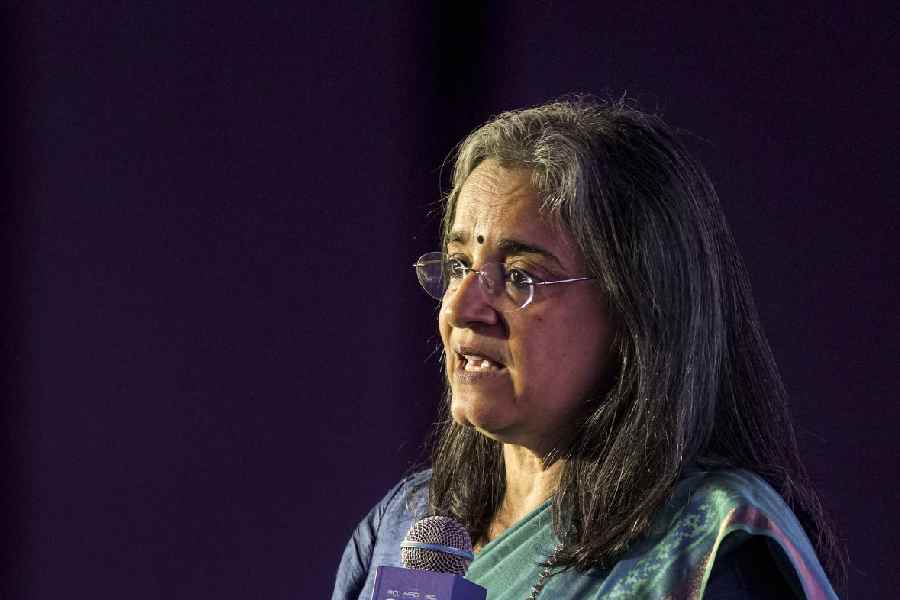
A vendor at Lalpur Bazaar in Ranchi. Picture: Manob Chowdhary
Additional reporting by Praduman Choubey in Dhanbad
Presence of formalin in fish procured by Bihar from Andhra Pradesh has set off alarm bells in Jharkhand, which also buys stocks from the southern state.
Health secretary Nitin Madan Kulkarni on Tuesday directed food safety officials to collect samples of all types of fish for the Namkum lab while director of fisheries H.N. Dwivedi urgently requested Central Institute of Fisheries Technology (an unit of Indian Council of Agricultural Research) in Kochi, Kerala, to rush formalin testing kits.
Formalin is derived from formaldehyde, a known cancer-causing agent. It is used to preserve bodies in mortuaries and can increase shelf life of fresh food.
Food and civil supplies minister Saryu Roy expressed his concern. “Presence of formalin and heavy metals can cause a host of illnesses such as pneumonia, bronchitis, hepatitis and even cancer. Immediate steps must be taken to curb the use of such preservatives, the health secretary and fisheries director have been told,” he said.
Fisheries director Dwivedi said they would require around 30 formalin testing kits. “We have sent an SOS to Kochi so that simultaneous testing can be carried out in all the 24 districts. The kits are expected to reach us by this week,” he said.
Dwivedi maintained that buyers need not panic now. “The fish that tested positive in Patna were from Andhra. In Jharkhand, most fish are local catch — from ponds and dams. We buy only five per cent stocks from the southern state. We are producing nearly 1.90 lakh MT of fish annually and the target for 2018-19 is 2.25 lakh MT,” he added.
Market sources, however, claimed that the supply from Andhra is nearly 30 per cent at fish stalls in cities like Ranchi, Jamshedpur and Dhanbad.
“We mostly sell rohu, catla and mrigal. Nearly 30 per cent supply is from Andhra while the remaining is from Bengal or local catch,” claimed Bimal Khalkho, a vendor in Lalpur market, Ranchi.
Madhu Dhibar, a fish seller on Hirapur Road in Dhanbad, also conceded that the bulk of his stock came from the southern hub. “Here, there is not much scope for fish production. Nearly 50 per cent is brought from Andhra and Bengal,” said Dhibar.
Mohammed Ibrar at Sakchi fish market said most of his sea fish and even 30 per cent of rohu-catla-mrigal were brought from Andhra and Bengal.
“The good news though is that with each passing year, the number of fish in water bodies in Chandil, Dimna and Potka, and neighbouring Mayurbhanj (in Odisha) is increasing,” he said, hoping that dependence on catch from the south might soon come to an end.

Catla fish on sale in Sakchi market, Jamshedpur, on Tuesday Picture by Bhola Prasad
Fish being a highly perishable commodity, sellers often use toxic chemicals such as formalin and ammonia to increase shelf life, particularly when the point of sale is far from the place of catch.
In the beginning, formalin may lead to nausea, coughing and burning sensation in the eyes, nose and throat. If consumed for a longer period of time, it can cause cancer.
Kulkarni, who is also state food safety commissioner, said he had asked his staff in districts to start collecting fish samples at random. “We do not want people to suffer from health problems. We don’t care from where the fish have been procured. All types will be sent for tests,” he said.
The Bihar health department on Monday banned sale, transport and storage of all types of fish for 15 days in Patna Municipal Corporation area after 10 samples were found unsafe for human consumption under the Food Safety and Standards Act, 2006.
Reports of Bihar samples sent to Central Food Laboratory in Calcutta confirmed use of formalin and heavy metals like lead, cadmium and mercury beyond permissible limit.












